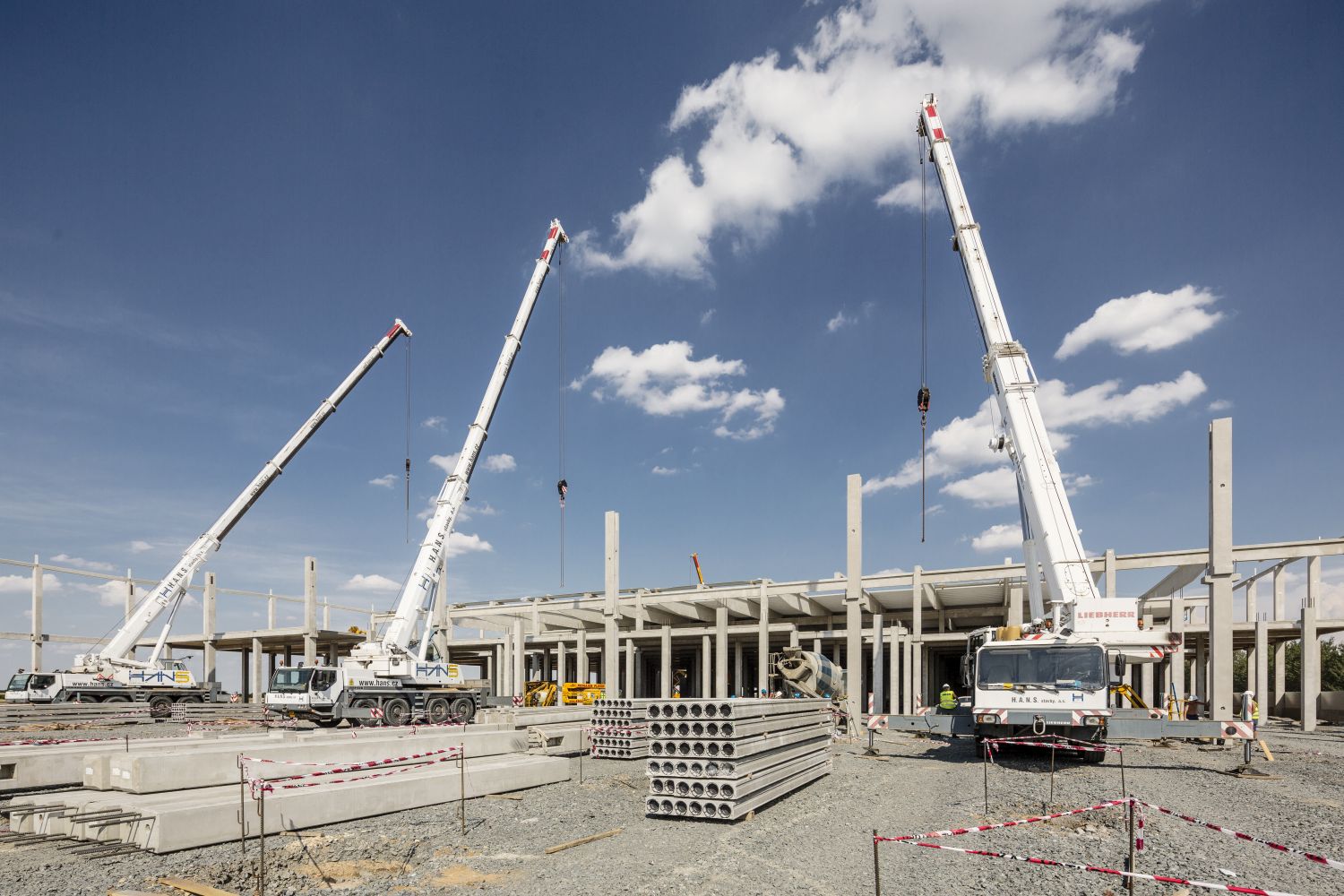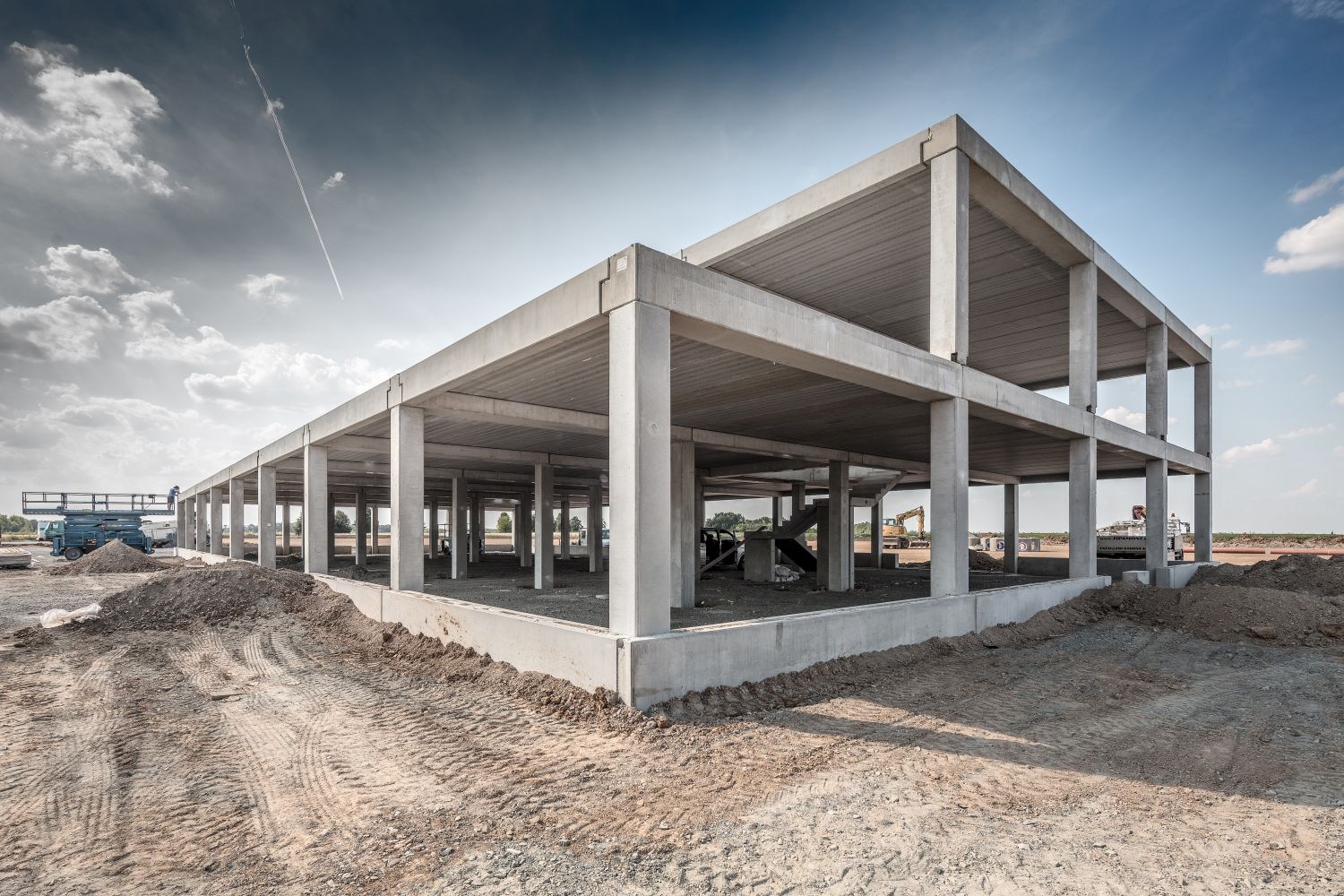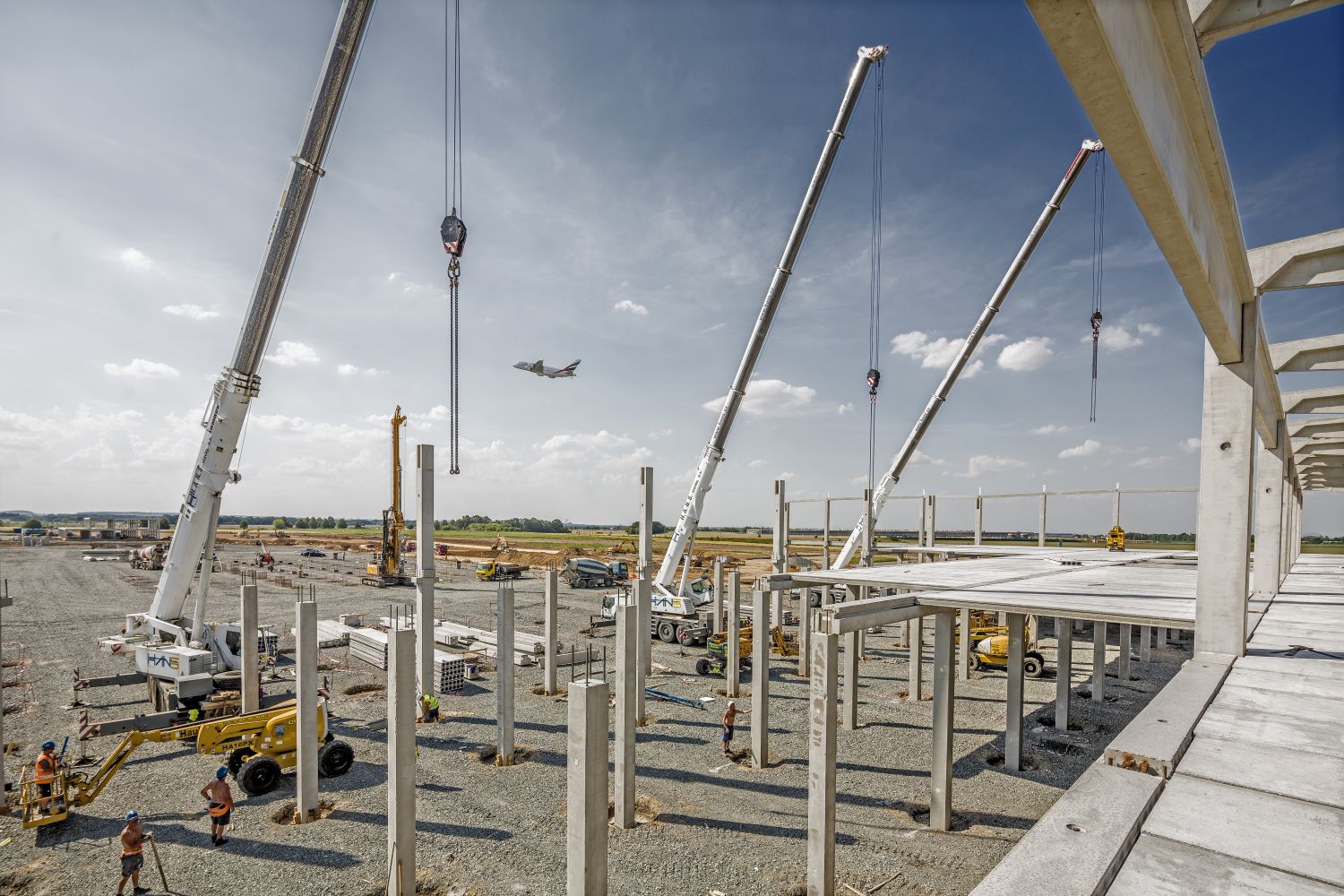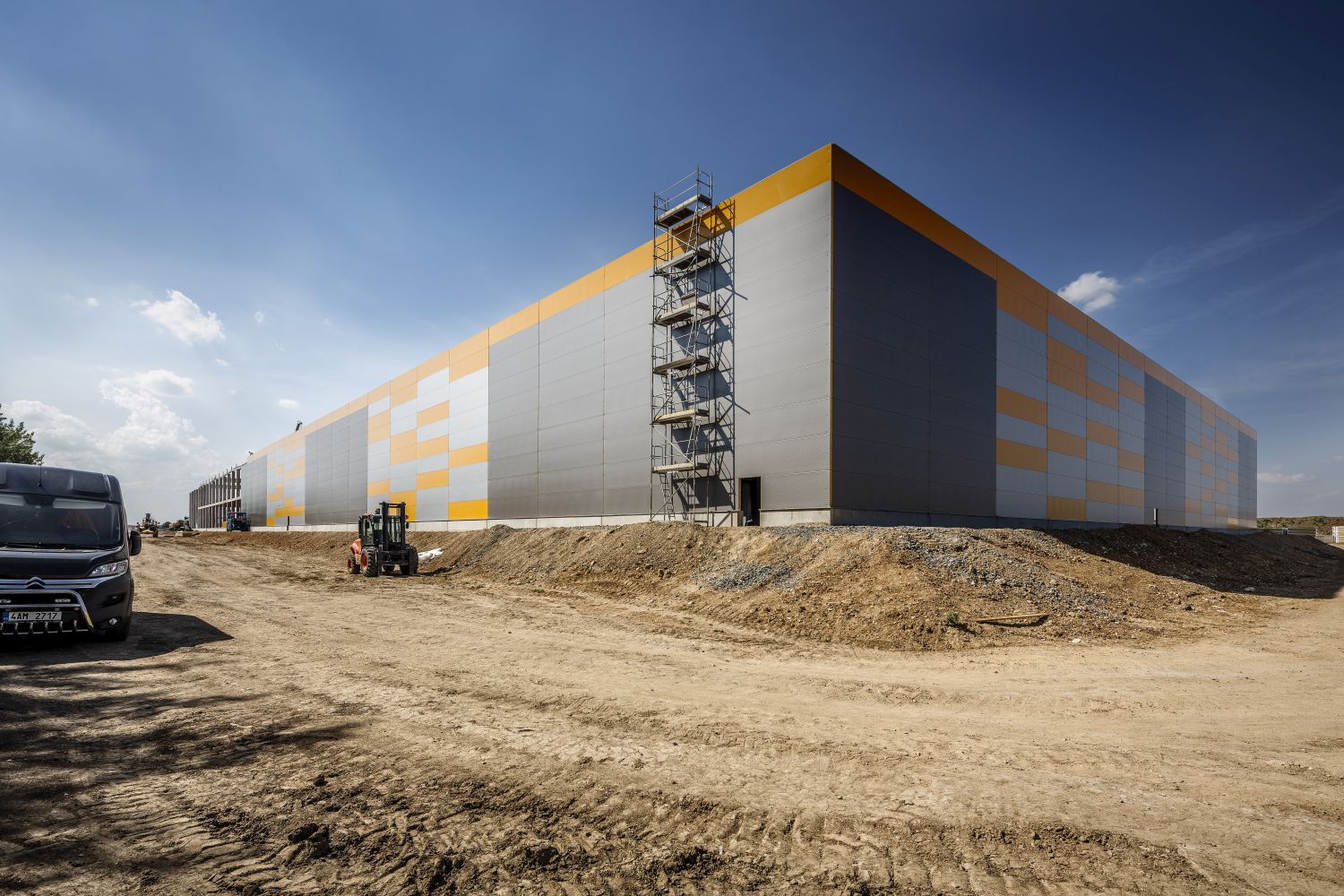There will always be a human eye.
4PX Czech Republic is the global e-commerce one-stop solution platform, talks robotics, automation and shares his vision for the future of logistics.
Interview with Radoslav Palla.
How do you see logistics in the future? Can humans be substituted by robots? If so, to what extent?
I think logistics, as a business, will become more and more important in the overall supply chain in coming years, as customer and client continue to expect faster delivery times. Increasingly, future business strategies in the e-commerce world revolve around the ability to complete delivery anywhere in the world in 3-4 days. With operational efficiency at an absolute premium, the people and businesses in charge of the processes that can enable these delivery times will be coming under massive pressure in the coming years. Robotics and automation may play an important part in the drive for greater effi ciency, but I do not think machines can make up 100% – or even nearly 100% – of any business in this field. It is true that many processes can be roboticised in the supply chain, but I believe that issues around strategy, efficiency, and any management issues that cannot be anticipated, will still need a human eye and brain. For example, we know there are automated warehouses in Europe already, and humans are limited in their influence in these facilities, but anywhere there is an element of change, humans will always be important. Lateral thinking will always come at a premium.
What advantages does technology, such as augmented reality or video mapping, bring into logistics?
Technologies like augmented reality and video mapping is a great idea, and potentially a fun addition to any business. At the moment, I think the value of these technologies are in training, scenario planning and problem solving. How it fits in with everyday processes is yet to be seen, and I do not think we are ready to implement these technologies into our full eight hour day yet, but it will be exciting to see if businesses can make this happen in future, and how.
It is true that many processes can be roboticised,
but I believe that issues around strategy, efficiency, and
any management issues that cannot be anticipated,
will still need a human eye and brain.
Nowadays, there is a wide range of modern technologies. Does your company or any of your subsidiaries abroad use these new technologies?
The term modern technology is hard to define, because we are at a point where technology is changing and evolving quickly all the time. However, recently in my career I have come across some very exciting technologies that are changing the way we work. The first is Pick2Light, which flashes a light on the shelf that pickers need to be looking at, effectively getting rid of any time wasted searching for the correct shelf. Even more innovative, our subsidiaries in China have gone one step further and use a system where a robot brings the required shelf to the picker. The system is so efficient that the picker does not even have to get up any more.
At the moment, we are also currently developing a sorting process in Europe, using similar principles to Pick2Light. In our business, there are a lot of small parcels for delivery globally. If successful, the new sorting process will be automated based on the bar codes of these parcels, meaning parcels will be selected into the correct loads for shipping without any manual work required. Currently we are using this in parts of Asia and Australia, but we hope this will become a global initiative soon.
The greatest drivers of transformation in our company are the demands of the market and of the consumer.
Ultimately, everybody wants cheaper, fast and more accurate delivery.

VGP Park Jeneč

VGP Park Jeneč
In which logistics sectors can drones be used? Do you use them in warehousing?
We do not currently use drones, but their potential in this industry is interesting, to say the least. At the moment drones are too small to bear more than a single parcel, or a couple of small parcels, so for warehousing, where the loads are much larger, it would not work. Of course, worldwide we see different companies testing them on delivery, and I think this is a great idea. However, lots of things need to be tested and arranged before we can use regularly… for example, we can deliver to your building, but can we deliver to your apartment? Not yet. It's a great idea, but for drones to become a reality, their accuracy in delivery must be better and their strength for warehousing needs to be much more advanced. If manufacturers can make it work, it could be very exciting for the industry.
What are the biggest drivers of transformation in your company?
Very simply, the greatest drivers are the demands of the market and of the consumer. Ultimately, everybody wants cheaper, fast and more accurate delivery, and must react to the needs by making changes throughout our processes to achieve these goals. Sometimes the changes are incremental, and sometimes they involve a complete overhaul, but at the end of it, the requirements of the market and the customer are most important.
What digital innovation has had the biggest impact on the business of your company/your industry (e.g. intelligent networks/ smart grids; Cloud computing; Big Data issues; agile IT processes; automation processes…)?
Warehouse Management Software, which allows agile IT processes and enables the flow of communication between us, our customers, and between our business units is the single most important digital innovation. It allows us to achieve efficiency and accuracy, edit orders or increase the speed of processing dependent on our client needs. For any competitive logistics and operations business, if you want to deliver great results, you have to have state of the art IT systems to support your business. The systems need to be better than any physical equipment we have.
Outlook 2020: what are the main chances/ opportunities and risks/ threats for your industry?
At the moment, the greatest opportunity is the current economy. The economy is good everywhere, and this means that there is opportunity for service providers across the entirety of the industry. Many managers I have spoken to lately, and myself included, think we are somewhere near the crest of the wave, economically speaking, and a lot of businesses are going to do very well in the next year or so. The major threat to this, particularly in Central Eastern Europe, is the availability of appropriately skilled workers. Whether it is in warehouses, drivers, pickers, administrative roles, IT… every segment is short-staffed at the moment. The big question is how will this develop into 2020 and how damaging could it be to the industry? If every role comes at a premium within a business, then the operating costs are driven up. If we cannot find efficiencies, and nobody will take on these costs, then the whole industry has a big problem. We are not at that stage just yet, but if the cost of labour spirals out of control the wave we are riding could come crashing down. It is my job to try and make sure that does not happen.

VGP Park Jeneč

VGP Park Jeneč, building for 4PX under construction
The economy is good everywhere,
and this means that there is opportunity
for service providers across the entirety of the
industry.
How do you “digitalize” your employees? How do you involve your employees in successfully supporting the transformation of business (and economy and society)?
This is a great question, which I have been wrestling with practically and philosophically for five years at least. We are trying, as humans, to digitalize and use robots everywhere, yet the population is growing and growing and growing. In 10 years’ time, will we be lying on our backs all day or will the place of work still contain humans in a way that we cannot yet imagine? At the moment it is very difficult to answer this question. I would prefer to keep human involvement throughout my supply chain in a way that humans are helped by robots rather than robots are helped by humans, but in reality, high profi ts are important for any international business. This means there will be change and automation, but, as I have already said, I think there will be a role for humans in any business, though I would need a crystal ball to understand fully what the workforce will look like beyond the next couple of years.
What about security/data protection?
In Europe, data protection is stricter than in Asia or the USA. In your opinion, do we need this regulation to protect companies and consumers or will this regulation lead to competitive disadvantages for Europe? Data security is extremely important in our business. Do I think it is a competitive disadvantage for European businesses to undertake extra due diligence and spend more money than in other places in the world? Yes. But, would I want to make European data legislation more lenient? Absolutely not. The regulations are there to make business safer, and safe business has its own value, whether this is understood in other parts of the world or not.